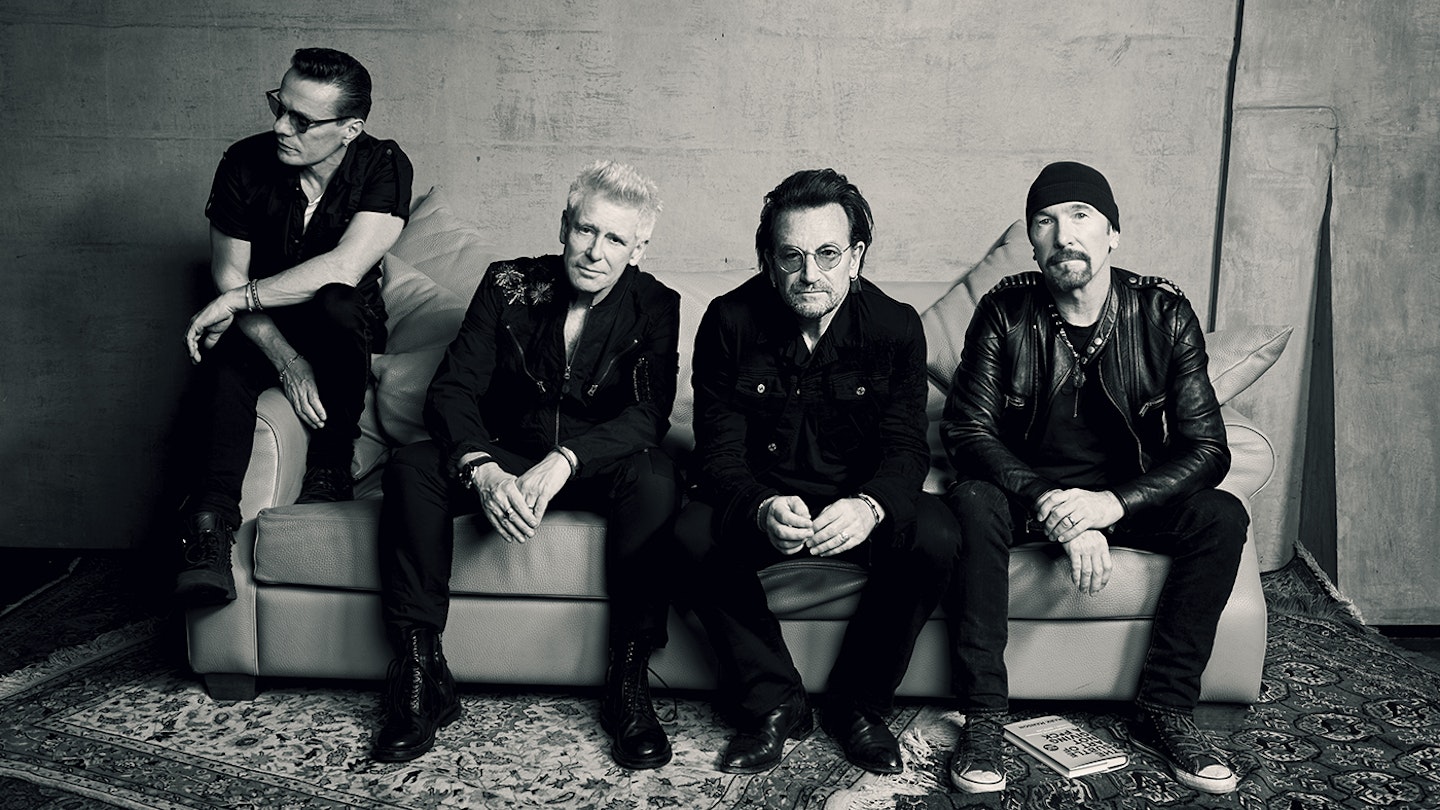One man’s gauche is another man’s heartfelt; one man’s art another man’s pretension. And so it is with U2, loved and loathed in equal measure almost from the moment Larry Mullen Jr pinned a Musicians Wanted ad to the noticeboard at Dublin’s Temple Mount school in 1978 and shanghai’d Paul ‘Bono’ Hewson, Dave ‘The Edge’ Evans and Adam Clayton. From the start, rock’n’roll for The Larry Mullen Band (as they were originally to be called) was an opportunity to bite off more than they could chew.
At first, with pals the Virgin Prunes, they opened up a new frontier for post-punk, The Edge’s frigid guitars providing a platform for Bono’s unfettered hollering. Two Ireland-only singles tempted Chris Blackwell’s Island label to the table; cue a run of chiming albums that soundtracked their inner struggle with a brand of charismatic Christianity. By the commercial breakthrough of 1983’s War album, they’d been born-again, but this time in red-blooded rock.
U2 New Album Exclusive: "I just want to write great tunes because that's where U2 started..."
Thematically, a struggle between the sacred and profane, the earnest and honest, would define their progress, while periodic sonic reinventions would save their skins. The Unforgettable Fire (1984) saw the debut of Brian Eno behind the faders, and the ethereal result horrified a label hoping for another War. But it was only when U2 resisted change (as they did on 1988’s über-trad, half-live Rattle And Hum) that they disappointed. Bono called the subsequent Achtung Baby (1991) “the sound of four men chopping down the Joshua Tree,” and the complicated, eclectic result set them fair for the complicated, eclectic ’90s.
In 2007, they thrive (’04’s How To Dismantle An Atomic Bomb debuted at Number 1 in America) maybe because, alone among their contemporaries, they move at the same speed as pop culture. “Spending time with Bono [is] like eating dinner on a train,” wrote Bob Dylan in Chronicles Volume 1. “Feels like you’re moving, going somewhere.” Strap yourselves in, it’s a bumpy ride...
10. October
Island, 1981
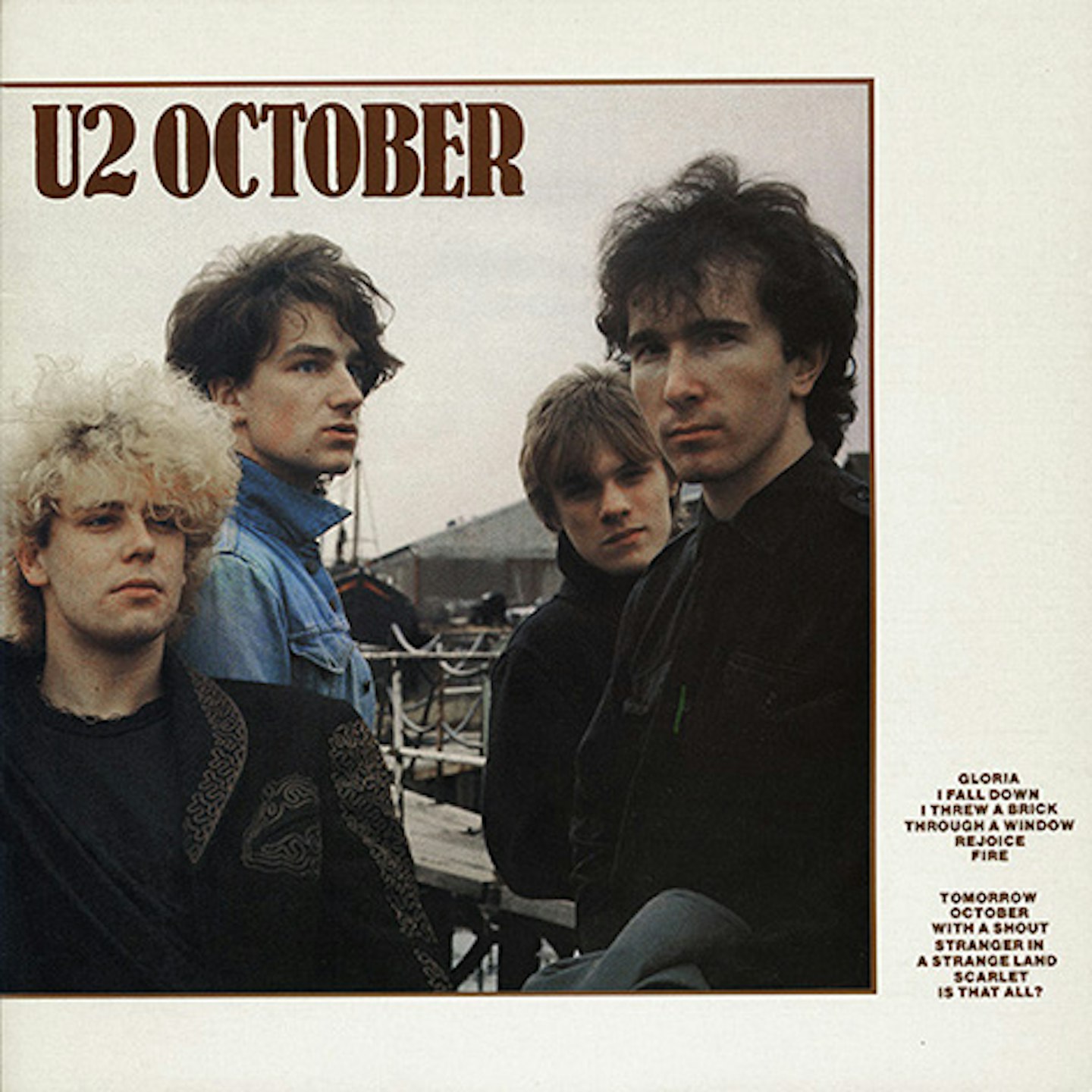
Woolly in parts, but only when compared with the certitude that preceded (Boy) and followed it (War), U2’s second album is knee-deep in swirls of mist, Celtic mysticism and, on Tomorrow, even uilleann pipes. Setting a precedent for crisis-ridden recording sessions, Bono lost his lyric books and started afresh here, while bassist Adam Clayton’s rakish agnostic lifestyle rubbed his born-again bandmates up the wrong way. Yet U2 are feeling their way toward new shapes and broader horizons where and that tension – between what is known and what is yet to be imagines is the charm of October, if not U2 in toto.
9. Zooropa
Island, 1993
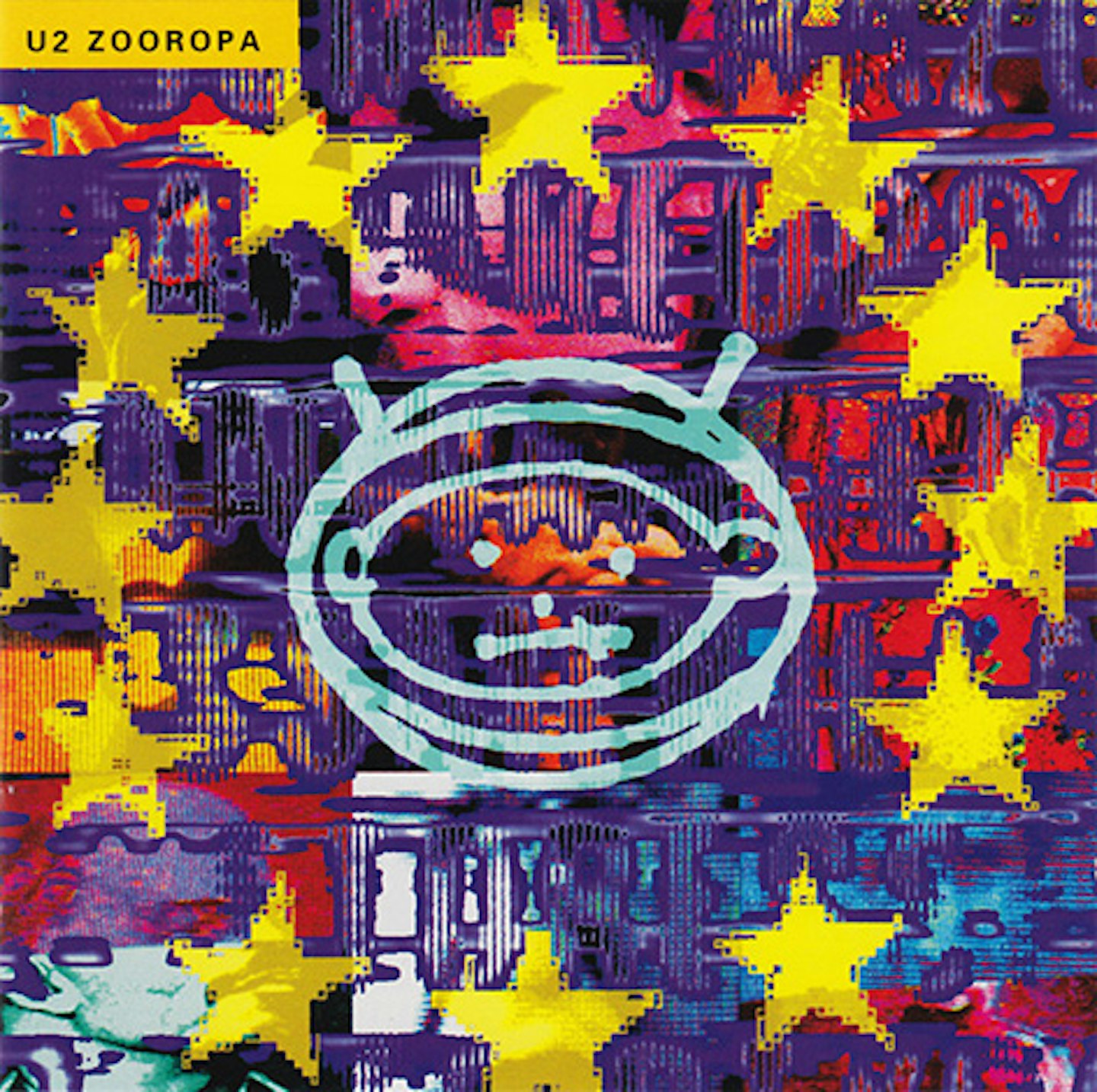
As if the 162-date Zoo TV tour was not testing enough, U2 recorded this warped, experimental affair between dates and at soundchecks and, laughing in the face of commercial good sense, released Edge’s icy techno-rap, Numb, as a single. Heavily electronic, and featuring Eno on keyboards, everything about Zooropa says what the hey – from The Wanderer’s startingly Kraftwerkian Johnny Cash conflab to Lemon’s scintillating, falsetto Eurodisco. Meanwhile, back at the ranch, Stay (Faraway, So Close) rivals the more feted One in the flayed ballad stakes. It was U2’s profit holiday, and it sounded like nothing before or since.
8. Pop
Island, 1997
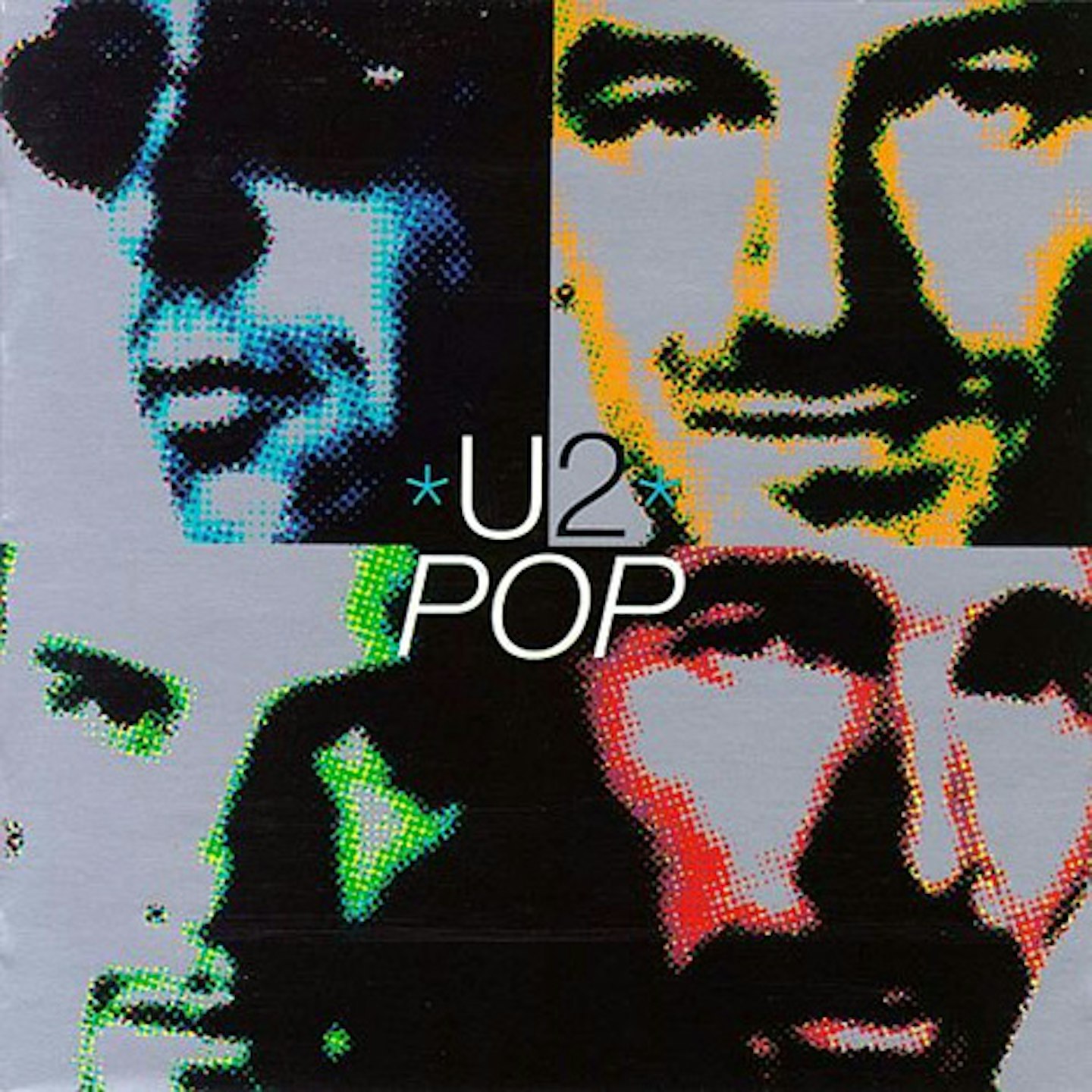
Underrated – not least by the band themselves, who consider it to be unfinished – but actually their most rewardingly enigmatic, even saturnine record, haunted by a(nother) crisis of faith and the absence of Bono’s mother (she died when he was 14). The name, the camp pimp apparel and the PopMart tour’s cheesy production design undersold the musical power and emotional content of Mofo and Wake Up Dead Man, while Disotheque has dated far, far better than a house holocaust with Howie B at the controls has any right to. The truth is, given their ease with uncomplicated mid-tempo grooves, the dancefloor suited U2 rather well.
READ MORE: "Bono was absolutely right..." The Edge Interviewed!
7. Live/Under A Blood Red Sky
Island, 1983
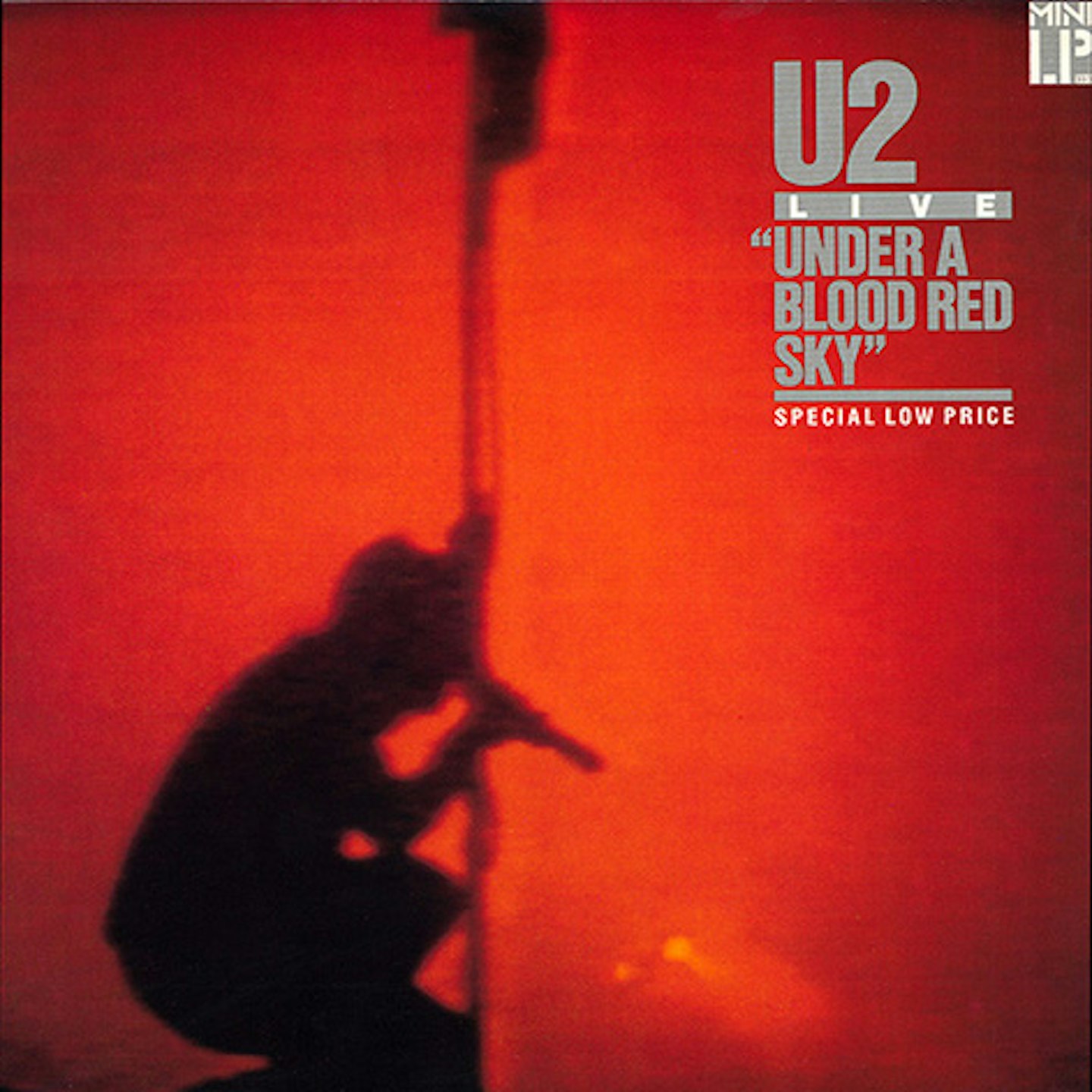
One of a small handfuls of truly iconic concert albums, Live/Under A Blood Red Sky parcels the best bits of October and War with an urgency that made America wake up and take notice. Not quite the “one show” presentation that the iconography suggests – there’s material here from Boston, West Germany and Red Rocks, CO – nor would Adam Clayton’s slap bass interlude in Gloria give Mark King sleepless nights, but a startlingly vicious sound (co-ordinated by Jimmy Iovine) and definitive version of 11 O’Clock Tick Tock, Sunday Bloody Sunday (“this song is not a rebel song”) and “40” provide more that adequate recompense. U2 at their toughest.
6. All That You Can’t Leave Behind
Island, 2000
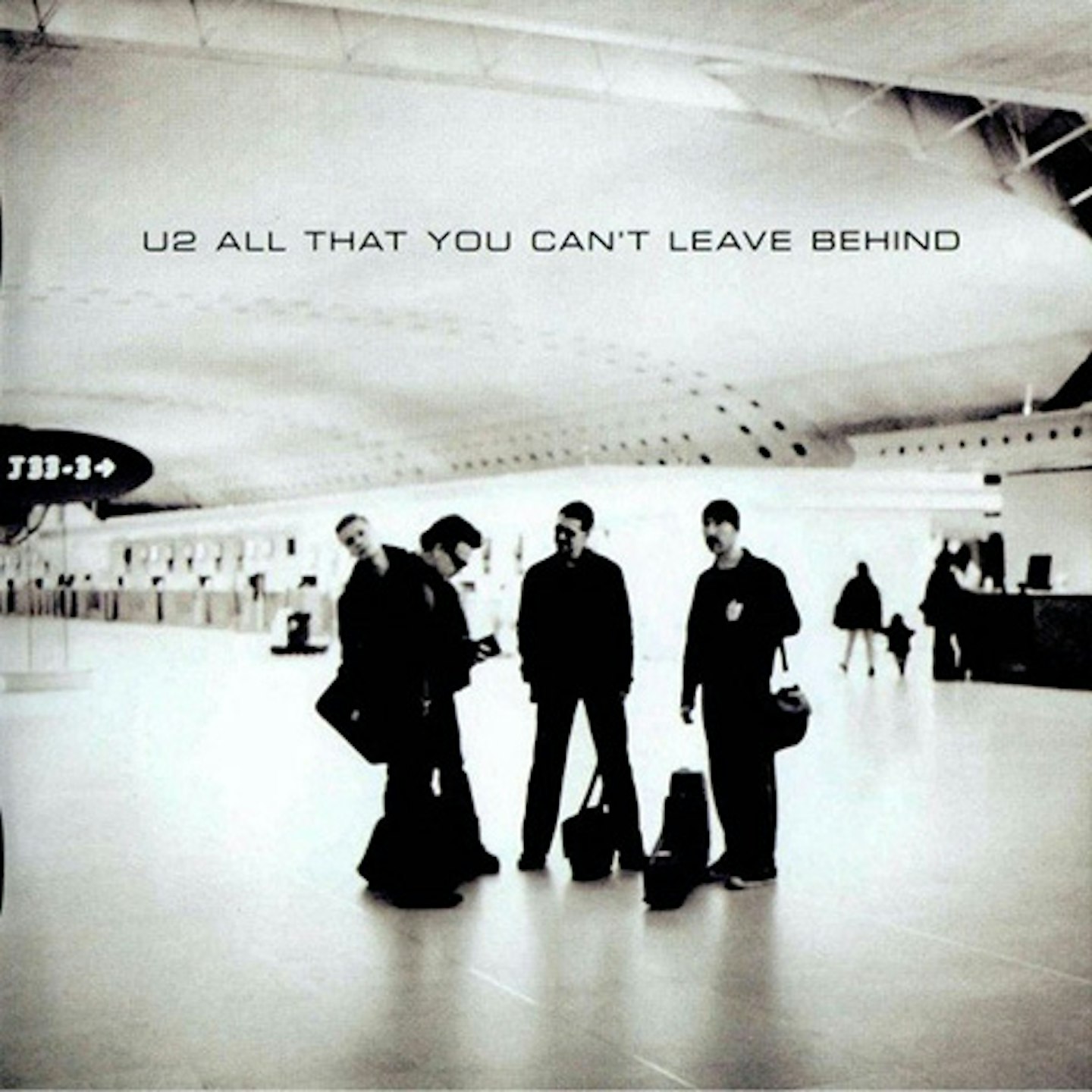
Originally gauche (this writer has never come to terms with Walk On) farewell to the art-rock years bookended by Achtung Baby and Pop, All That You Can’t Leave Behind is U2’s self-conscious reclamation of mainstream pop prominence. Out the “Classic Coke” Edge riffs, but so did soulful pop hooks (In A Little While, Stuck In A Moment You Can’t Get Out Of) while Bono found a little Dusty Springfield in his laryngeal repertoire. The subsequent ubiquity of Beautiful Day shouldn’t tarnish its original brilliance, while the range of topics – the Omagh bomb to the death of Michael Hutchence – only served to emphasise how long they’d been away.
5. The Unforgettable Fire
Island, 1984
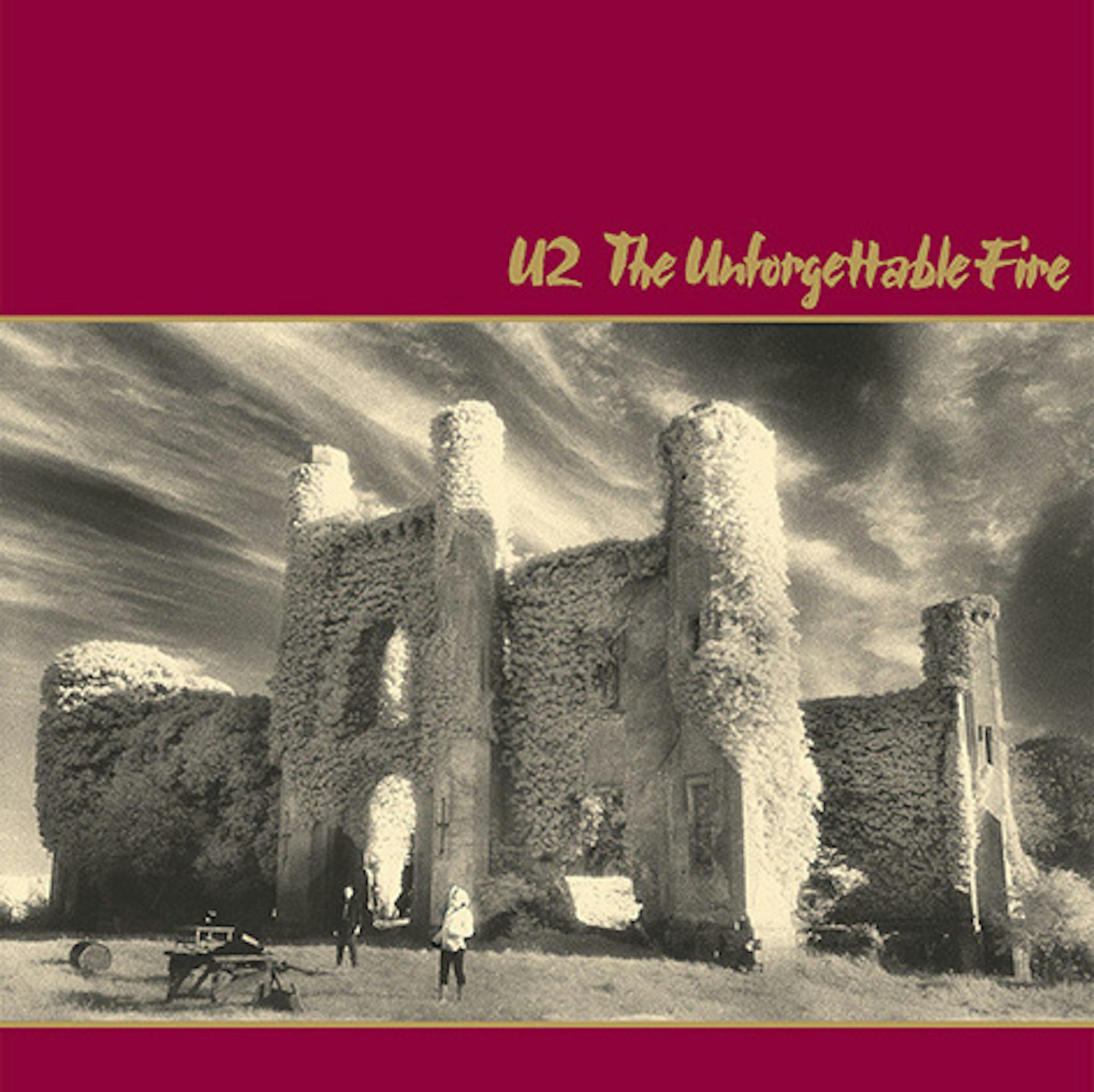
Bucking his image as the band’s arch-conservative, Larry Mullen wrote to the ambient guru Brian Eno suggesting he produce them. The result was this exquisitely elegant exorcism of the sometimes club-footed War. Spooky reveries (Promenade, MLK) and slow-building epics (the durable showstopper Bad) set the tone as Edge’s guitar palette (owing how much to Eno protégé Michael Brook?) enters a new phase of impressionism. Although it’s tempting to see The Unforgettable Fire as merely the prequel to The Joshua Tree, this remains their least bombastic album and their first wholly successful reinvention.
4. How To Dismantle An Atomic Bomb
Island, 2004
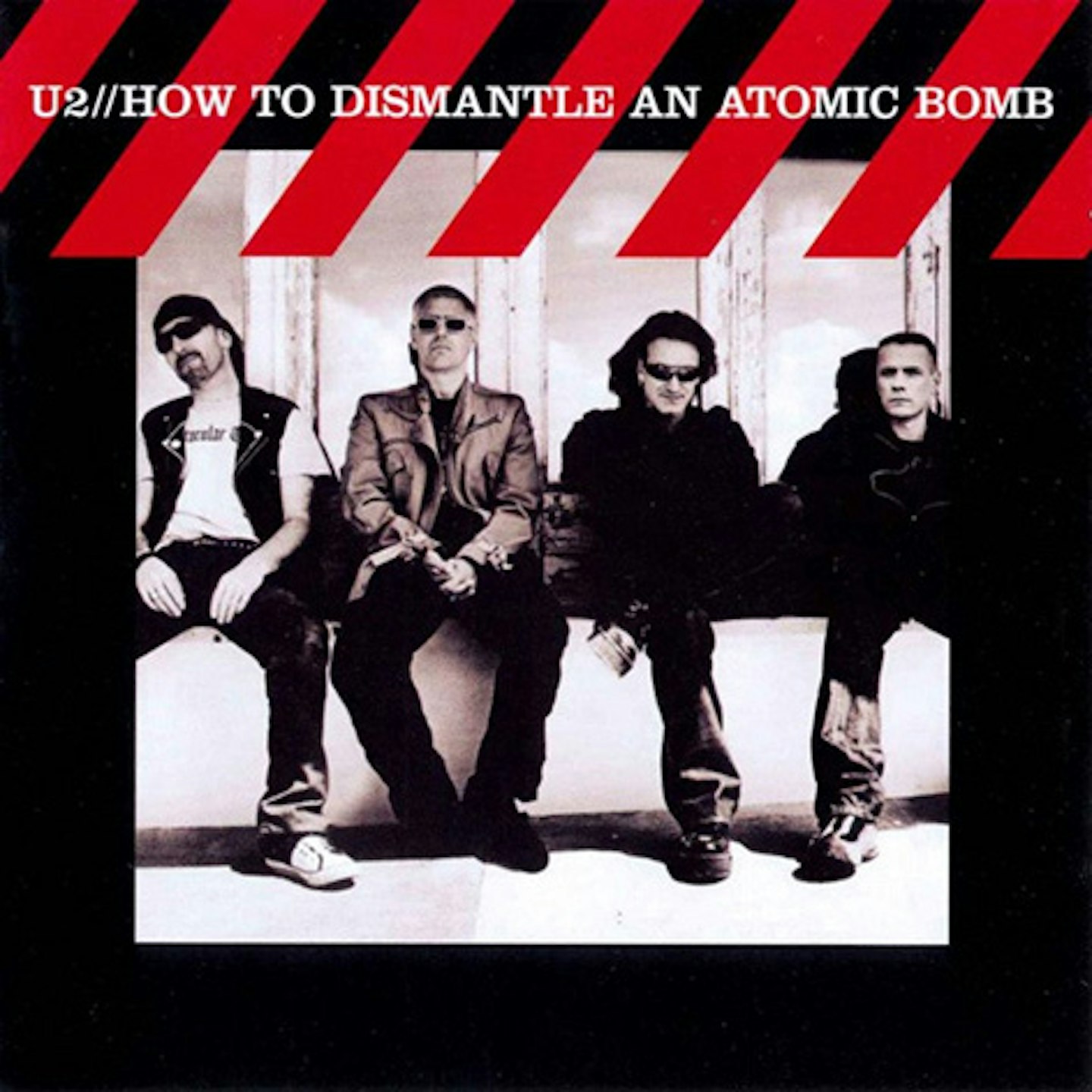
It’s not a ‘story’ like All That You Can’t Leave Behind (Lazarus-like commercial comeback with a side order of mid-life crisis), but How To Dismantle An Atomic Bomb lacks its predecessor’s uncertainties. A sleek, state-of-the-art warship with the wind of a mainstream guitar rock revival at its back, and an almost comically overwhelming secret weapon in the shape of Sometimes You Can’t Make It On Your Own – Bono’s elegy to his father, Bob Hewson - How To Dismantle An Atomic Bomb mixes bone-juddering rock’n’roll thrills (All Because Of You) with spiralling melody (City Of Blinding Lights), and if there’s a flaw it’s that it’s almost too painstakingly polished.
READ MORE: “It sounds like a kind of liberation…” Read MOJO’s verdict on U2's Songs Of Surrender
3. Boy
Island, 1980
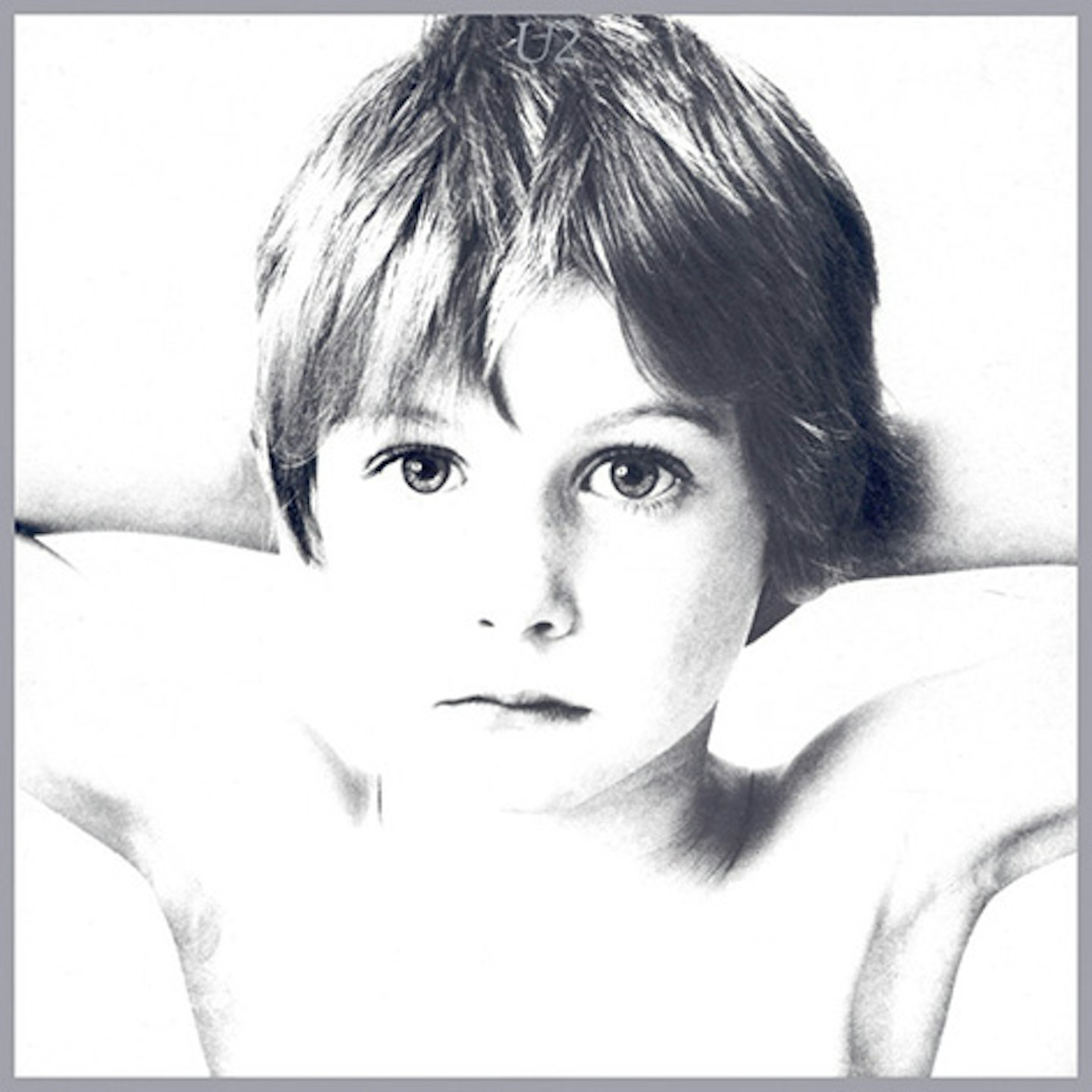
The debut album is the cornerstone of the U2 legend, from the emo-babble lyrics, bum-bum-bum basslines and notorious “glistening shards” of Edge axe. The Banshees, The Clash and the Skids are powerful presences, but there’s something uniquely cubist in the way the songs fit (imagine covering the jerky Out Of Control, or Another Time, Another Place) while a still confounding aura hovers above I will Follow’s stiletto attack and The Electric Co’s quasi-psychedelic eddies. Meanwhile, an in-your-face desperation to communicate echoes loudly across the intervening 43 years.
2. Achtung Baby
Island, 1991
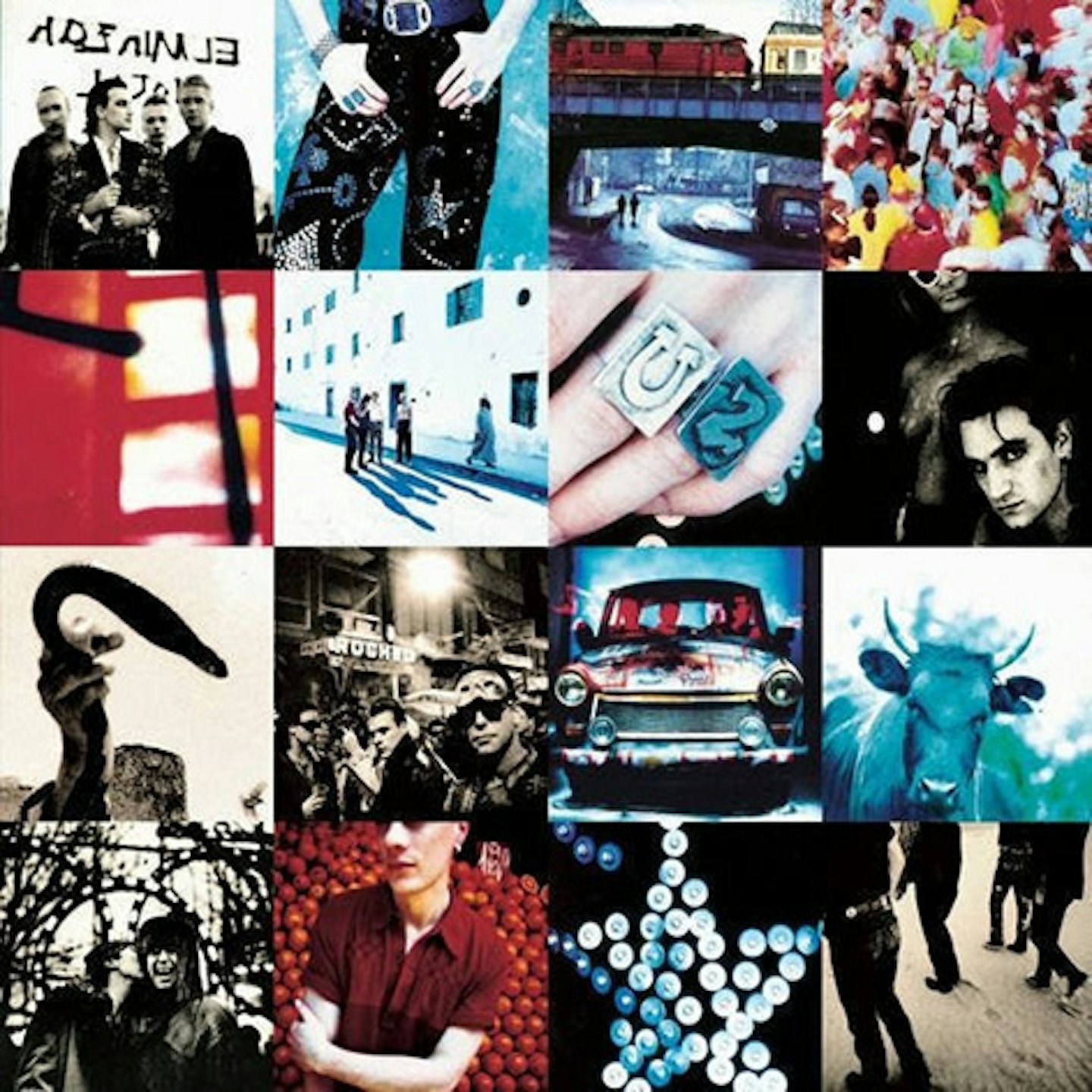
“You’ve ruined irony for everyone,” producer Nellee Hooper told U2. Yet, while this is the quartet’s grooviest, most playful incarnation, hindsight reveals yet more U2 earnestness, albeit in a funk Bacofoil suit. In fact, these are U2’s first songs of sex and doubt – the harrowing One being Bono’s appropriation of Edge’s marital snafu and The Fly a profoundly jaundiced analysis of the rock star’s role (“Every artist is a cannibal, every poet is a thief/All kill their inspiration and sing about the grief”)- while the eclectic sound-world references, and transcends the early ‘90s dance-rock vogue.
1. The Joshua Tree
Island, 1987
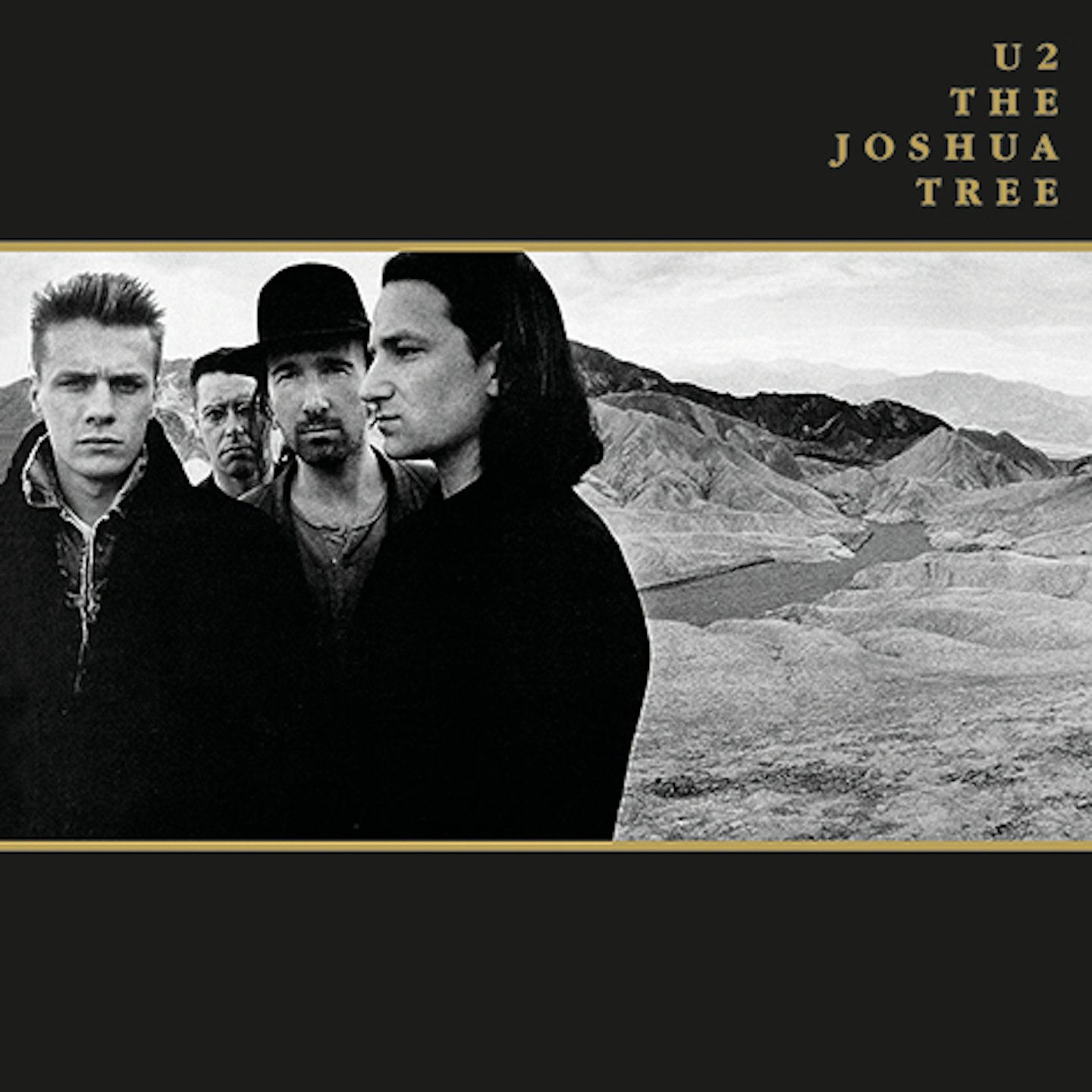
The apotheosis of their spacious, post-Eno guitarscape, a perfect fusion of post-punk with trad rock, soul and gospel, with songwriting to match the sonic architecture at last. America – the idea of it – is the star, from the spine-tingling, Chrysler Buildlng romanticism of Where The Streets Have No Name to the politically charged city-at-night dissonance of Bullet The Blue Sky, via the neo-Appalachian jog-trot of I Trip Through Your Wires. Sometimes it takes non-Americans (eg, The Band, Neil Young) t see the bestof that nation, and it’s arguable that Bono’s political vision of an American that embraces its humanitarian responsibilities was first glimpsed here.
